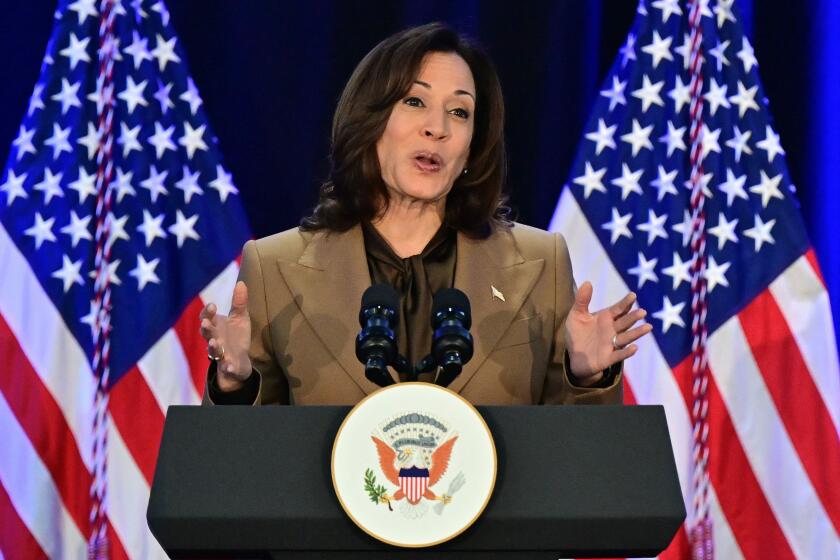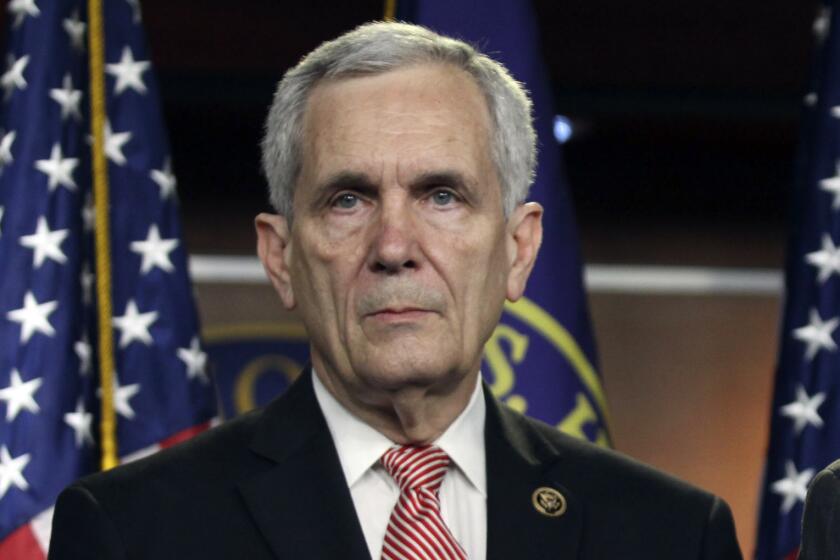Not a good swap
There may be good reasons for granting clemency to Jonathan Pollard, the former Navy intelligence analyst who was sentenced to life in prison in 1987 for providing U.S. military documents to Israel. But Pollard’s usefulness as a diplomatic bargaining chip isn’t one of them.
Four Democrats in Congress are circulating a letter urging President Obama to release Pollard as a way of encouraging Israel to make “difficult decisions” in the peace process with the Palestinians. Such an arrangement was suggested during recent talks about how the United States might persuade Israel to extend a freeze on the construction of Jewish settlements in the West Bank. It wasn’t the first time the idea of “swapping” Pollard for Israeli concessions had been proposed.
The idea is unseemly and impractical. Granted, the United States has released foreign spies — most recently sleeper agents from Russia — in exchange for the freedom of Americans or political prisoners. But there is no one this country needs to ransom from Israel. As for the supposed diplomatic benefits of Pollard’s release, it’s doubtful whether it would induce Israel over the long term to pursue policies it considered inimical to its security. Israel is much more likely to be influenced by continuing U.S. support for its security as it pursues negotiations with the Palestinians.
Pollard’s lawyers have petitioned Obama for a commutation of his sentence to the time he already has served. What criteria should influence the president’s decision? The fact that Pollard spied for a friendly nation isn’t an extenuating factor; even if Israel and the United States have identical interests, which isn’t always the case, the decision to share intelligence with another country belongs to the political leadership of this nation, not to individual government employees.
A better argument for clemency (one that also figures in the letter from the members of Congress) is that Pollard’s sentence was excessive compared with those of other convicted spies. That disparity is something for the president to consider. Even so, other factors must be taken into account, including whether Pollard is sincerely remorseful and whether his continued detention is a deterrent to others who might be tempted to engage in espionage against their own country, either out of ideology or for financial gain.
In making any decision, Obama should consult his legal and national security advisers. But he shouldn’t allow himself to be stampeded into a decision by an illusory promise of diplomatic dividends.
More to Read
Get the L.A. Times Politics newsletter
Deeply reported insights into legislation, politics and policy from Sacramento, Washington and beyond. In your inbox three times per week.
You may occasionally receive promotional content from the Los Angeles Times.






